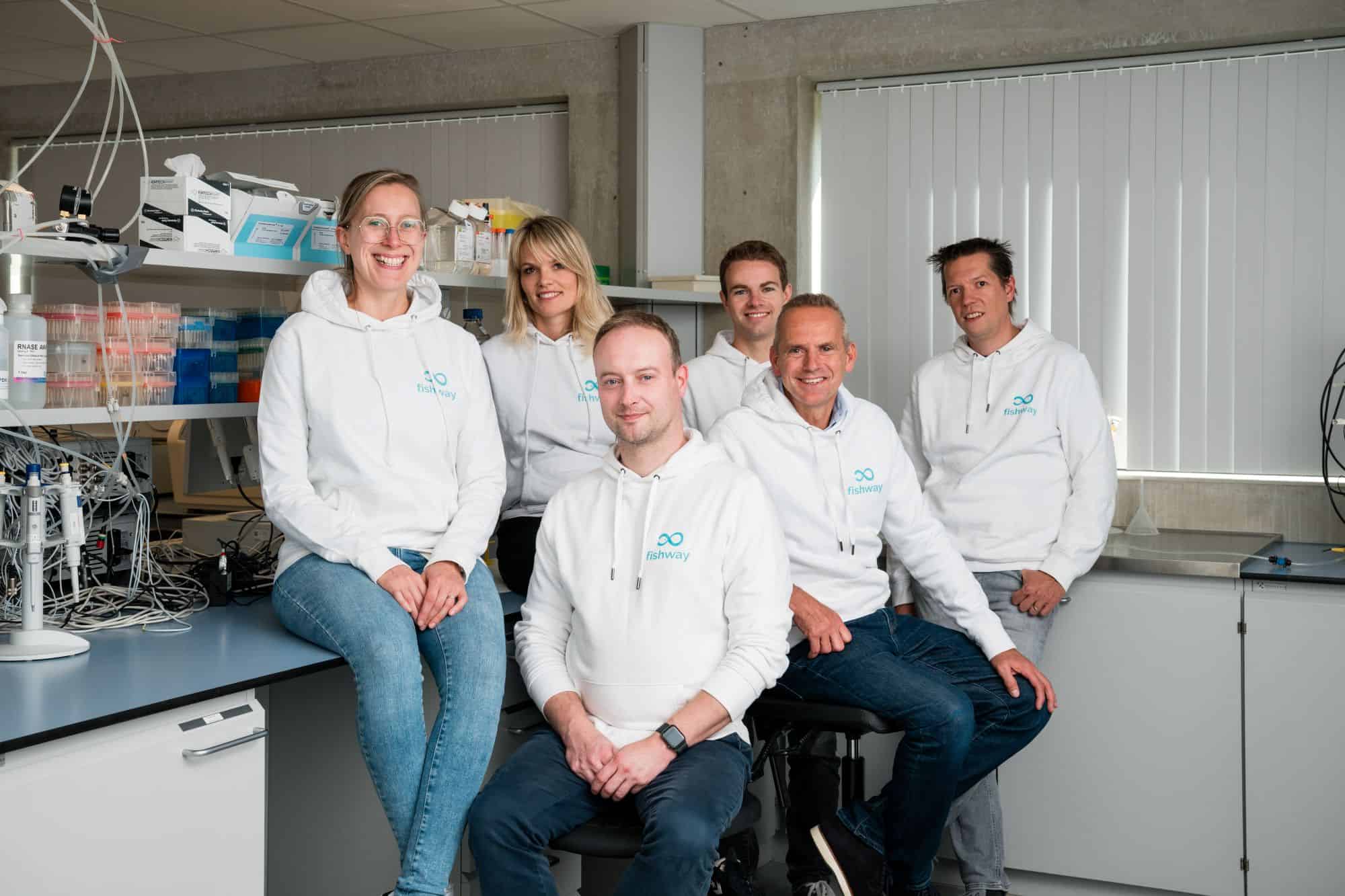90% of the world’s shellfish stocks are exploited, overexploited, or depleted, gravely affecting marine ecosystems. The FAO estimates that by 2030, global demand for shellfish will rise significantly, challenging traditional production methods, including aquaculture.
“Cultured shellfish meat emerges as a strategic response to these challenges,” Prof. Yosef Buganim, CSO of the Israeli startup MarineXcell, told Cultivated X.
MarineXcell, founded in 2023 by Buganim, an HHMI international scholar renowned for pioneering work in stem cell research; Dr. Gadi Lipiner (CEO), an experienced executive and scientific consultant; and Leonardo Berezowsky, a finance and operations expert, aims to create a sustainable and reliable source of seafood.
“By leveraging technological advancements, MarineXcell aims to address the increasing demand for shrimp, lobster, and crab”
“By leveraging technological advancements, MarineXcell aims to address the increasing demand for shrimp, lobster, and crab, minimizing environmental impact, preserving marine ecosystems, and bringing to the world a new sustainable source.”

Cultivating crustaceans
Prof. Buganim’s research in biotechnology has led to the development of a proprietary process for mass-producing “genuine” shrimp, lobster, and crab meat using stem cells.
Based on nuclear reprogramming or pioneering non-Yamanaka methods, MarineXcell’s innovative technology converts adult cells into embryonic stem-like cells, also known as induced pluripotent stem cells (iPSCs).
This approach addresses challenges like technology complexity, cost of production, and scale-up issues, which, according to the professor, makes “MarineXcell very unique within the shellfish meat production arena!”
Moreover, his lab is among the few worldwide that have mastered this technique. Thanks to the nuclear reprogramming technology, MarineXcell recently achieved a significant breakthrough in reprogramming bovine cells, “a key advancement for cultivated meat production that was previously unavailable,” Prof. Buganim told us.
“MarineXcell’s approach is not only groundbreaking for the seafood industry but also environmentally responsible”
“Given the evolutionary distance between crustaceans and mammals, the conventional Yamanaka factors are ineffective in reprogramming crustacean cells into embryonic stem-like cells,” he added.
MarineXcell’s stem cell technology allows the production of crustacean meat free of contaminants, antibiotics, and diseases at scale. Its advantages include a continuous and efficient cell proliferation process that maintains cell differentiation over time, assuring authenticity. Additionally, it promotes accelerated cell division, resulting in mass production efficiency, while the cells’ resilience in suboptimal conditions leads to better adaptability.
“MarineXcell’s approach is not only groundbreaking for the seafood industry but also environmentally responsible, aiming to preserve our planet’s fragile ecosystems,” Prof. Buganim highlighted.

Next goals for cultivation
MarineXcell, supported by Yissum, the Tech Transfer company of the Hebrew University, is a young startup still in the R&D phase.
The startup’s next goals include establishing cell lines for shrimp and lobster and optimizing the culture conditions for crustacean cells, which have evolutionary differences from mammalian cells that need to be addressed.
“We initiated the establishment of shrimp and lobster cells using our own funds, but due to the need for additional funding, the research has been temporarily halted,” he stated.
MarineXcell aims to raise funds during this year and 2025 to continue developing its platform and demonstrate a proof of concept.

Humans, environment, and animals
Using its cutting-edge stem cell technology, the startup aims to offer a sustainable and high-quality alternative to traditional shellfish, addressing environmental concerns and animal welfare. Cultivating shellfish meat creates a humane alternative to conventional capture and slaughter methods, improving the welfare of crustaceans.
“Decapod crustaceans are routinely subjected to cruelty that would simply not be tolerated for other animals”
Prof. Buganim highlights the lack of animal welfare laws for crustaceans despite evidence of sentience and the cruelty they often face. He said, “Decapod crustaceans are routinely subjected to cruelty that would simply not be tolerated for other animals. The MarineXcell process for producing crab, shrimp, and lobster meat based on stem cells is a genuine solution to those creatures’ welfare.”
The startup was part of the Finalists Coller Startup Competition-2023 Group.




